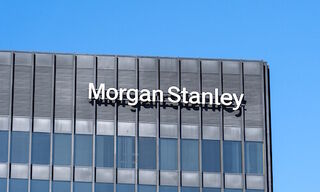Initiatives to strengthen cross-border Renminbi (RMB) flows and a commitment to collaborate on capital market connectivity between China and Singapore were the key outcomes in financial co-operation arising from the recent State Visit to Singapore by the President of the People’s Republic of China, Mr Xi Jinping.
Three key initiatives were announced to further expand channels for cross-border RMB flows and enrich the ecosystem to support greater use of the RMB outside China.
First, China and Singapore agreed to extend to Chongqing Municipality the same cross-border RMB initiatives that currently exist with respect to Suzhou and Tianjin1. This means, for example, that Singapore-based banks will be allowed to lend RMB to companies in Chongqing and Chongqing-based companies may issue RMB bonds in Singapore and fully repatriate the proceeds.
The enhanced cross-border channels will help to further boost RMB activities in Singapore. They will also provide a larger variety of financing solutions for Chinese corporates and help to strengthen financial connectivity between Singapore and China’s western region.
Second, Singapore’s quota under the RMB Qualified Foreign Institutional Investor (RQFII) scheme will be doubled from RMB 50 billion to RMB 100 billion. This is in response to the strong interest by Singapore-based asset managers and investors to invest in China.
This larger quota will allow more fund managers in Singapore to offer investors a wider range of RMB fund products. It will also help bring greater liquidity to China’s capital markets and help to broaden their investor base.
Third, the Monetary Authority of Singapore (MAS) and the People’s Bank of China agreed to renew and enhance the bilateral currency swap arrangement (BCSA) established between the two central banks. The existing PBC-MAS BCSA was signed in March 2013 and is due to expire in March 2016.
By providing timely liquidity support to market participants, a stronger BCSA will help anchor market confidence as Singapore’s RMB market continues to grow.
A new dimension in the financial co-operation agenda between Singapore and China was the agreement to enhance capital market co-operation. Two specific initiatives will help to set off this process.
First, there was agreement to institute a regular high-level dialogue between MAS and the China Securities Regulatory Commission (CSRC). This will help the two regulators to exchange views and come to a common understanding on regulatory issues that impinge on their respective capital markets.
Second, MAS and CSRC agreed to explore product collaboration to broaden capital market offerings. With greater capital market connectivity, Singapore will be well-placed to support the needs of Chinese policy banks, corporates and investors under China’s One-Belt-One-Road initiative.
MAS Managing Director, Ravi Menon, said: “Singapore and China have achieved remarkable success in RMB co-operation thus far. It has benefitted our financial centre while supporting the gradual and orderly internationalisation of the RMB. In the next phase of our financial co-operation with China, we hope to replicate in the area of capital market development the success we have had in building the RMB ecosystem. There is great scope for China to tap on Singapore’s strong institutional investor base and established derivatives markets to facilitate the development of their own capital markets. There are also significant opportunities for exchanges from both sides to collaborate in a mutually beneficial way.”




















